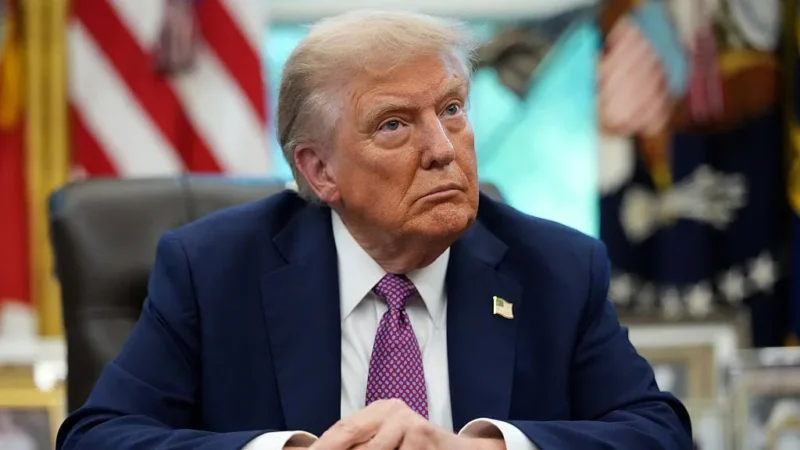Can Donald Trump Steal a Second Term?

As president, Trump received the best possible treatment anyone infected with the virus could hope for, including access to medication that an average American can only dream of. Trump’s insensitive tweet flies in the face of the lives lost, displaying his utter disconnect from reality and a cruel lack of empathy. This is a president who has a chronic compulsion for defrauding people and lying pathologically about seemingly everything, including his finances. As a recent investigation by The New York Times exposed, Trump not only managed to pay no tax at all in 10 out of the past 15 years, but he is also a consummate loser as a businessman.
Trump is also the first president in the history of the United States to have been impeached and then seek reelection following an acquittal by the Senate. It is seemingly inconceivable that a tax evader, crook, pathological liar and callous narcissist can succeed in hoodwinking the public for a second time into electing him. Sadly, anyone who dismisses Trump as not reelectable would do so at their own peril.
Voter Suppression
President Trump has repeatedly tried to undermine the democratic process in more ways than one cares to count in the lead up to the presidential election on November 3. Without providing any credible evidence, he has claimed that voting by mail is fraught with fraud, sowing seeds of doubt in the election results should his bid for a second term fail. Wary Democrats have reacted to this by encouraging people to cast their vote in person, despite the raging pandemic.
In an effort to further subvert mail-in voting, Trump trained his guns on the United States Postal Service (USPS), openly admitting that he opposed allocating additional funding. “They need that money in order to have the post office work so it can take all of these millions and millions of ballots,” Trump stated unabashedly in an interview with Fox Business’ Maria Bartiromo in August. “If they don’t get those two items, that means you can’t have universal mail-in voting because they’re not equipped to have it.” Despite these attacks, Trump himself voted using a mail-in ballot during the March presidential primaries in his resident state of Florida.
One has to marvel at the brazen thoroughness with which he is diminishing the authenticity of the very process that propelled him to his current position. There are only two ways in which people can exercise their franchise: by voting in person or by using an alternate option that is available to them in their local jurisdiction, such as absentee ballots. On the one hand, Trump has discredited the usage of mail-in ballots. He has also appointed Louis DeJoy, a Republican donor, as postmaster general, who has crippled the operations of the USPS. On the other hand, Trump is employing scare tactics to turn people away from in-person voting. His comprehensive approach is aimed at lowering voter turnout, which he believes will be favorable for Republicans.
In a statement that borders on voter intimidation, Trump stated in an interview with Fox News on August 20 that “We’re going to have sheriffs, and we’re going to have law enforcement, and we’re going to hopefully have U.S. attorneys and we’re going to have everybody, and attorney generals.” Trump was alluding to sending law enforcement officials to voting centers. Federal law prohibits any on-duty law enforcement personnel bearing arms from entering a voting center without the express purpose of casting their own vote. Yet the mere threat of sending police and sheriffs to voting centers, even if only to monitor polls, can terrify marginalized communities and prevent them from turning up to vote.
Logic Defying Loyalty
Anyone with an iota of common sense can see the hypocrisy of Trump’s statements. Sadly, there is an intransigent base of followers that he has cultivated who refuse to see him for the charlatan president he really is. Cognitive neuroscientist Bobby Azarian’s article in Psychology Today, entitled “A Complete Psychological Analysis of Trump’s Support,” enumerates more than a dozen elements that energize Trump’s voter base, which include terror management theory and the Dunning-Kruger effect.
There are several Republican politicians who have stated that they will not be supporting Trump in this election. Nearly everyone on the list is someone who held office as a Republican in the past and is not seeking reelection. Other than Senators Mitt Romney and Lisa Murkowski, both of whom have not categorically stated who they intend to vote for, most sitting Republican politicians have forsaken their dignity and self-respect in order to do Trump’s bidding.
Former Nevada Senator Dean Heller brazenly lied in a Fox News interview that the state’s vote-by-mail process will allow people to vote once by mail and once in person. Trump echoed this in September when he seemed to suggest voters should “test” the system by casting their ballot twice.
Serving as an election officer in my local county, I know for a fact that when a person’s vote-by-mail ballot is received, it is recorded in the system and it is impossible for the same person to vote again without committing fraud under the penalty of perjury. Truth notwithstanding, Trump and Heller have managed to sow seeds of doubt among the gullible, making some of them question the robustness of the country’s democratic election process.
South Carolina Senator Lindsey Graham has been one of the biggest turncoats in his criticism of the president. In 2015, Graham called Trump a “race-baiting, xenophobic, religious-bigot.” Today, he is one of Trump’s staunchest cronies. Fighting a tough reelection bid in his home state, Graham shamelessly kowtows to the same person who was the object of his scathing criticism that has made an interesting case study on the fluctuating loyalties of politicians.






